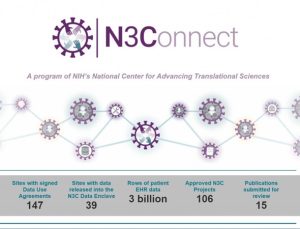Data Sharing during the COVID-19 Pandemic
By Javier Romo | March 16, 2022
Patient data privacy and security is, by standard, something that all healthcare organizations must provide assurance for. However, when a global pandemic threatens humanity, data sharing amongst healthcare entities is vital to understanding, controlling and responding to the spread of virus, as we saw in the 2020 COVID-19 pandemic. The problem was, at least early in the pandemic, barriers that were in-place to isolate patient data for privacy and security prior to the COVID-19 pandemic created data silos and lack of capability to tackle the crisis in a coordinated fashion. While in a normal situation, we study privacy, ethics and legalities around data sharing, but the pandemic forced us to abandon those strongholds to, hopefully, save as many lives as possible.

Why Was Data Sharing Important?
Data sharing during the pandemic does not simply involve lab or vaccine data, but also demographics like age, race, location, perhaps even previous diagnosis. Electronic health records allowed for the mass collection of this data. As scientists learn about a virus, they must understand who the virus is impacting the most and generally, that involves the curation of all this data to describe the effected population. While many of us would in a normal case prefer our data be private to our healthcare organization of choice, the benefits of this practice became obvious.
First, vaccine distribution was tailored towards individuals who were high-risk of a serious COVID-19 reaction or more likely to get infected. For example, the first group of individuals prioritized for the first dose were older adults, many in nursing homes or assisted living facilities, and healthcare staff, especially hospitals who were actively treating infected patients (Stieg, 2020).
Secondly, the curation of patient data allowed governments to make significant policy and orders to reduce the spread of the pandemic. For example, as the data showed a spread of the pandemic, governors across the United States placed shutdown orders to prevent the spread. These decisions were based on the story of the data and the impact the virus could have on regions under threat.
What Is Happening Now?
The COVID-19 pandemic presented many learning lessons that will impact how the United States, and likely the world, addresses a future pandemic. For example, the National COVID Cohort Collaborative, a data sharing project sponsored by the National Institute of Health (NIH), is developing a database named N3C that allows for healthcare organizations that are participating in the project to share “entire medical records” with the database (Frieden, 2021). This framework is specific to the COVID-19 pandemic; however, it is a framework that can be recreated and deployed for a new virus or disease. And while all of it sounds good during a pandemic, now that is 2022 and the pandemic appears to be nearing its end, patient privacy concerns are reemerging. It is important that we review when data sharing, especially to this extent is allowed and rebuild trust in our healthcare data security and privacy

To conclude, the COVID-19 pandemic was a shock to the healthcare system, and the world. It required rapid changes to data sharing to move data out of healthcare system silos and in the hands of healthcare entities and government that can help combat the pandemic. In war, militaries utilize information gathered by spies, reconnaissance or other intelligence to strategize a battleplan, healthcare systems during a pandemic need something similar, and in this case, it was data gathered from electronic health records. Now that the pandemic is nearing the end, we must review what was done and rebuild the trust in our healthcare data privacy. However, we must research and develop contingency plans to share data in the case another pandemic threatens lives of many people.
References
[1] Frieden, J. (2021, April 23). Health Data Sharing Improved During Pandemic, but Barriers Remain. Retrieved from Medpage Today: <https://www.medpagetoday.com/practicemanagement/informationtechnology/92263>
[2] Stieg, C. (2020, December 14). When Dr. Fauci and other experts say you can expect to get vaccinated for Covid-19. Retrieved from CNBC.com: <https://www.cnbc.com/2020/12/14/who-gets-the-covid-vaccine-first-timeline-and-priority-explained.html>
Images
Image 1: <https://www.medpagetoday.com/practicemanagement/informationtechnology/92263>
Image 2: <https://chicagoitm.org/learn-how-to-harness-this-national-covid-19-database-for-your-research/>
